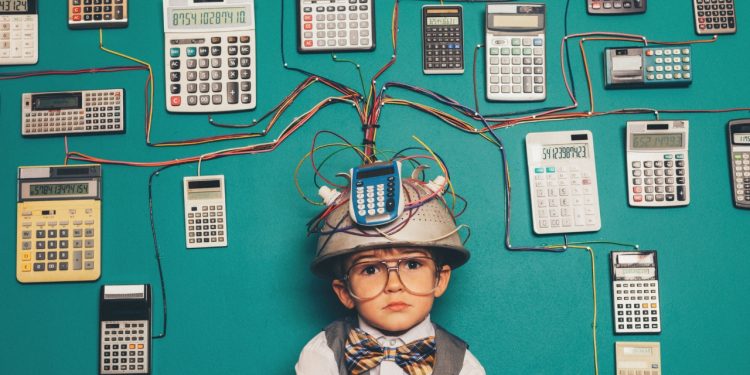Every morning you slide out of bed, brew a steaming cup of coffee, and dive into a friendly swarm of word puzzles. Move after move, your thumb drags letters into place, fills stubborn blank squares, and sniffs out shy words tucked away in the grid. But what really goes on inside your skull after thirty mornings like that?
Is it just a good laugh and a tiny bragging right, or does that little habit hand your brain a real tune-up? Let’s peek under the hood and see how those humble puzzles supercharge your thinking-and why they deserve a spot on your to-do list.
Your Brain Loves a Challenge
The human brain is a hungry learning machine. It soaks up facts, links new ideas, and hunts for patterns all day long. Word puzzles plug right into that hunger. Each time you crack a clue, you stir several brain circuits at once:
- Memory-keeping words, synonyms, and sneaky clues.
- Focus-zoning in on a jumble of letters.
- Logic-piecing hints together and spotting links.
- Repeat that drill for a month and your brain actually lays down fresh connections.
Week 1: Sparking New Connections
During the first week with word puzzles, your brain hums like an old radio tuning into fresh static. Scientists say that steady practice kicks your neuroplasticity into gear, so tired cells begin stretching out and reaching for each other.
While you puzzle, keep an eye out for:
Improved Focus: Since every clue demands patience, your mind learns to flick off the noise hovering around it.
Mental Clarity: Once you slide into problem mode, thoughts sharpen and zip along like a fast current.
A Sense of Accomplishment: Slapping down one tricky answer releases a splash of dopamine, and suddenly you’re hungry for the next box to crack.
Week 2: Strengthening Cognitive Muscles
By week two, steady drills thicken those new pathways until they feel almost ropey. Now the puzzles are cardio for your brain-and the good news is, none of it requires a sweaty treadmill.
Watch for these changes:
Enhanced Memory: Each clue hooks a wisp of memory, and answering it again glues short-term notes to long-term shelves.
Better Vocabulary: Odd names like quixotic or ebullient slip into the grid, and suddenly they no longer scare you.
Problem-Solving Skills: Whether it’s a Sudoku dead end or a messy locker, you’ll tackle both in calm, step-by-step moves you hardly knew you could make.
Week 3: Unlocking Creativity
Right about now, something neat kicks in. Your brain learns to work smarter instead of spinning its wheels. Many word puzzles nudge you to leap outside rule-zoned boxes, and that playful practice feeds your creativity.
Key changes include:
Pattern Recognition: You start spotting hidden shapes and tricks everywhere, a knack that slides into quick choices and even your doodles.
Faster Processing: Ideas connect in your head almost before you notice, whether you’re finishing a puzzle or brainstorming in class.
Stress Reduction: The chill zone word puzzles bring tension, and that wide-open space lets fresh ideas drift in without blockage.
Week 4: Building a Resilient Brain
After thirty days you aren’t just solving puzzles; you are wiring a stronger, healthier brain. Research backs this up-word games may:
Delay Cognitive Decline: Regular brain workouts lower the odds of Alzheimers and dementia creeping in.
Improve Emotional Health: The tiny rush of success that pops up with each solved clue boosts confidence and spreads everyday cheer.
Sharpen Focus and Decision-Making: You’ll probably feel your brain getting quicker at tricky jobs and calmer when big choices really count.
The Science Backs It Up
Researchers keep telling the same good story about word puzzles. One report in International Psychogeriatrics showed that older adults who solved them had sharper memory, clearer reasoning, and steadier attention. A joint study from Exeter’s team and Kings College London even claimed puzzle fans showed brain power matching people a full decade younger.
But the boost isn’t limited to seniors. Young workers, busy students, and anyone chasing quicker mental reflexes can score big by squeezing these tiny games into daily life.
Tips to Maximize the Benefits
Ready to jump into the word-puzzle habit? Use these tips so every short session pays off.
- Start Small: Pick an easy grid first, then tangle with a monster when you feel sassy.
- Be Consistent: Carve out fifteen to twenty minutes each day, same time if you can.
- Mix It Up: Swap crosswords, word hunts, anagrams, and whatever else keeps boredom at bay.
- Play With Friends: Team up, compare times, and let friendly chatter light up the grind.
- Set Yourself a Weekly Goal: Choose a target number of puzzles and don’t stop until you finish.
Why Puzzle Jam Is About to Steal Your Heart
If you like sneak-attack word puzzles popping up throughout your day, Puzzle Jam is the solid sidekick you want. Made by people who geek out over crosswords and anagrams, the app dumps a fresh batch of teasers in every style, so rookies and old pros keep discovering new fun.
Puzzle Jam shines with these handy tools:
- Daily Challenges: A brand-new mini workout waiting each morning.
- Multiplayer Mode: Dash against friends or family and snag bragging rights.
- Personalized Difficulty: Slide the challenge dial up or down yourself.
- Insights and Progress: Watch your scores chart upward week after week.
Are You Ready to Level Up Your Mind?
Stick with those puzzles for thirty days and the change stops hiding. Clearer focus, sharper memory, and a bright little spark in your ideas surface almost by surprise. Log in now and let Puzzle Jam show you just what your mind can really do!














